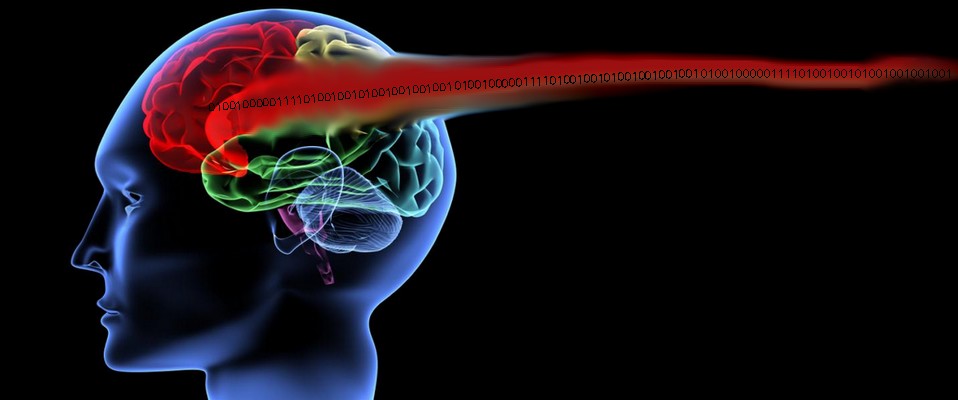By
Cognitive Dissonance
As is pretty common these days, the genesis for this article was a conversation between Mrs. Cog and me regarding word and phrase definitions within a larger discussion about perception and understanding. In essence the question was this; how do you think outside the box when your language and belief system have you trapped within? While I am most definitely sympathetic when someone protests “It simply never occurred to me……” ultimately only slaves are not responsible for the language they use and the thought boxes they keep.
Precisely what is it you think you ‘know’ for certain? Exactly what ‘knowledge’ do you possess which is of such certainty and veracity that it need never be seriously questioned or examined? Ultimately if something never occurred to me it is simply because I decided the softer easier way forward was to participate in groupthink and not question my ‘reality’. I alone am responsible for my curiosity quotient or lack thereof.
Since better answers do not come without asking better or different questions, there is no one else to blame for our ignorance but us. Just because I have been trained and conditioned to ‘believe’, rather than to think, doesn’t mean I am incapable of thinking. What it does mean is I simply do not wish to be curious beyond the comforting confines of my own thought walls. Ultimately I am mentally sated and lazy when I accept not only these externally imposed cognitive limitations as mine, but then convince myself I am essentially content and need do no more when the lie, and my inner voice, says otherwise.
Knowledge, information, propaganda and belief, while all distinctly different words with dissimilar meanings, are often conflated to mean nearly the same thing. Or more accurately, the meanings and definitions are blurred, combined and contrived in order to create a controlling thought meme that is skillfully separated from reality and ‘truth’. Herein is the problem as I see it, or at least a major issue that greatly contributes to groupthink, the hive mind and ultimately the sacrifice of the ‘self’.
Let me start by rendering my opinion regarding the definitions of these words, most of which agree somewhat with common definitions, but not necessarily with common usage. I suspect centuries ago, even millennium, our ‘known’ world, that which we had ‘knowledge’ of and knew about, encompassed pretty much all we surveyed and little else.
In my opinion, and contrary to popular belief, the term ‘knowledge’ includes only what I ‘know’ or the entirety of my ‘knowing’ either through personal experience, direct observation or personal self examination……and nothing else. Anything other than this direct ‘knowing’ is simply hearsay and little more. This is contrary to the widely accepted definition of knowledge being the sum total of what we have been ‘taught’ or have ‘learned’, including all knowledge, information, propaganda and belief we acquired through education or other sources aka hearsay.
Of paramount importance here is to imply no judgmental assessment of this definition of ‘knowing’, such as right or wrong, correct or incorrect, good or bad. For example, I might find some wild berries in the woods and decide to eat them. Almost immediately I become violently ill and remain in that state for hours or even days. One might say from that point on that I know those berries to be poisonous and to be avoided. But do I really ‘know’ this to be true and correct based simply upon my experience? The answer is unequivocally NO!
The berries might easily have been quite edible while ripe, only to turn nasty after passing their peak in the same manner cow’s milk is fine for a period of time, but can then make you very sick if ingested after it has turned. We don’t declare spoiled milk poison, so why wouldn’t the same thinking apply to the berries? Or maybe the berries were contaminated by something else in the woods, such as a truly poisonous plant overhead or bird/animal droppings. There are easily half a dozen alternative explanations for getting sick from the berries.
All I truly ‘know’ about those berries is I became very sick after eating them. In reality I ‘know’ very little else based upon my personal experience and observation. In other words my ‘knowing’ does not always imply correctness or truth, nor does it mean my knowledge is necessarily false or not factual.
In our rush to judge in order to satisfy our often imagined need for certainty, sometimes we jump to conclusions and make assumption that don’t really apply. We don’t need to declare with absolutely certainty those berries are poisonous in order for us or others to avoid them. But in a paternal/authoritarian world where to be believed is to be powerful, one must speak with certainty and conviction regardless of information or knowledge to the contrary. This applies directly to our inner dialogue as well. Oftentimes we muster a false sense of certainty in order to bolster personal courage or to push something uncomfortable deep down the denial hole.
On the other hand ‘information’ is usually purported to consist mostly of ‘facts’ and ‘truth’ and is compiled, sorted, categorized and publicized by others (who it is presumed gathered it themselves, but often do not) as possessing these qualities. Thus many claim to pass on their own ‘true’ knowledge or body of knowing to others for the benefit of mankind and perhaps their personal profit. Because of prior conditioning and cultural norms we/they actually ‘believe’ this information is part of our/their knowing or knowledge. Essentially what we ‘know’ has been twisted to mean what we have been taught.
If someone else ate those berries, got sick and then told you to avoid them, this would be considered information not of your own personal knowing. Regardless of the person’s motive who is informing you of the berries, to those who have not experienced or observed this ‘knowledge’ personally it is just hearsay, though not necessarily true or false. Consider how in the US legal system information deemed hearsay is not admissible as ‘evidence’ because its veracity is questionable and not of speakers own personal knowing. Yet we never consider applying these same rules of evidence to our own personal lives to screen what we believe we know or what we are told or taught.
The true conflation begins when we are given, and accept, information gained from outside our direct experience and observation as both ‘knowledge’, or something we now ‘know’, and as ‘correct’ and ‘true’, a state often referred to as ‘fact’ by those who are promoting their ‘truth’. If that person who ate the berries informed you they became sick and you should be careful around the berries, the information is being passed on to you with no direct bias other than that derived from their personal experience. But if that person tells you the berries are poisonous and you should stay far away from them they are claiming as ‘fact’ something they may or may not actually ‘know’.
Much of what we ‘know’ in this indirect manner (more information than you might think) is often just as suspect as our own body of knowing if not more so. But since the source of the information is often an ‘author-ity’ (someone who authors or creates his or her own veracity, genuineness or authenticity) or the information is ‘taught’ to us by another authority such as a teacher or ‘profess-or’ (someone who orally or in writing professes their ‘knowledge’ as correct and truthful) we accept their information as genuine knowledge of our own knowing rather than information that is, or at least might be, suspect or tainted.
As I discussed in my article “The Science Delusion – Reexamining Our Worldview Mindset” the fantastic success of materials science and its total infiltration into our daily lives has helped convince us our world is mostly ‘known’, understood and for the most part static and constant. The high degree of confidence the so-called ‘experts’ have in themselves, and we in them, along with the tremendous success basic materials science has achieved in delivering magical consumer devices and products to an adoring public, all combined with the ever greater need for specialization in our work, thought and leisure activities, have conspired to turn modern day fallible humans into demi-gods of ‘true’ fact and knowledge.
Yes, I mention specialization because in a world where on a daily basis the generalists of acquired knowledge through experience and deed are a dying species, we are forced to narrow our focus onto smaller and smaller portions of the global machine. No longer can we be a computer programmer or a machine operator. Instead we must focus our talents as a Windows “Start” button programmer or machine “Start” button pusher.
I am of course being sarcastic, but only barely so for as our world becomes ever more complex we mere humans can no longer be a jack of all trades, master of none, but rather master of one small part of one trade and jack of absolutely none. The effect this has upon our worldview is not readily apparent, but quite obvious once we recognize the forest from the trees. Our directly perceived experience base rapidly shrinks, or is never expanded for those who are conditioned directly into this brave new world from mother’s womb. Thus we ‘know’ very little other than possibly our very narrow range of ‘expert’ experience gained first hand.
This is both good and bad for those who are caught in the web because our narrow experience base requires us to depend upon others to fill in the huge gaps left over as we navigate through life. The good news is since everyone else is also a narrowly trained ‘expert’, each of us can help others navigate past every bump and pot hole in our assigned section of the road, thus no one ever has a ‘bad’ life experience. Or at least that’s the theory anyway. In practice we might experience a slightly different reality on a case by case basis. Thankfully if all else fails we can rely on the experts in government, academia and industry to smooth the way forward when life gets a bit difficult.
Now that last paragraph was a heaping helping of sarcasm, and deservedly so I might add since the above mind meme is constantly being promoted by all those who stand to benefit as the individual cedes more and more sovereignty to the group collective and the hive mind. An extremely complex organism designed to operate within a carefully controlled environment which requires narrowly trained specialists to operate and repair it is inherently unstable and prone to collapse. When this organism collapses both its beneficiary and servant (better described as its master and slave) aka the individual, collapses with it.
This doesn’t mean we can’t or shouldn’t use other people’s information and professed knowledge as we travel our own path. Instead what we must do is treat everything as potentially suspect and fallible, especially our own knowing, because at this point it is extremely difficult (if not impossible) to separate what we ‘know’ from what we have been taught. It is not just computers that suffer from the “garbage in, garbage out” syndrome, yet so many refuse to even consider many of our thoughts and conclusions are the result of corrupted programming, conditioning and ego manipulation, thus we remain swayed and controlled despite our protestations we are awakening.
Plugged In as a Control Device
 Image by Rob Woodcox
Image by Rob Woodcox
There are those who will claim sans a sense of sound psychological ground under our feet, thus always on edge and continuously charged with a fight or flight impulse, we will be wracked with indecision and lacking in purpose and drive. And for the most part they are correct……when describing those who are not mentally and spiritually centered and have repudiated their personal sovereignty. Automatons most definitely are lost when their programming is wiped or corrupted, but a critical thinking sovereign individual is self empowered and not exclusively dependent upon external affirmation, validation and direction.
This brings us to the subject of propaganda, or the deliberate conflation and distortion of information and knowledge to control and direct thought while confirming prior conditioning. Unlike the purveyors of ‘information’, who most often are themselves unaware of their own corruption and, absent critical introspection and self examination, will impart this existing corruption upon any information they produce or acquire, thereby spreading the corrupting virus far and wide, the propagandist consciously, deliberately and with malicious intent preys upon the inattentive and indoctrinated to manipulate and feed upon their fears, prejudices and predilections.
While the ultimate goal of propaganda may be to control and direct the herd, the actual technique used is to divide and conquer the population while promoting illusionary goals and aspirations to keep the wage slave crew rowing while they bicker amongst themselves. The carrot and stick approach is particularly effective when we are conditioned to use it upon ourselves and others like us. The only condition more profitable to the corporate masters and the powerful elite than a kept slave is a slave who keeps him or herself under the auspices of freedom, liberty and justice for all.
The one common denominator among all types of slaves past, present and future is the slave mentality, ultimately defined and expressed as self limiting thought, beliefs and actions. Propagandized information serves to promote and inflame that very condition which, when combined with an underlying economic system that keeps the population striving forward while perpetually underwater, holds the slave firmly in the past or future and never settled in the present. One short leg on a four legged table is always unsettled and an enormous distraction, forever unbalanced and rarely stable other than for extremely short periods of time.
Belief, on the other hand, is a very complex subject in and of itself even without examining any specific belief. While the word ‘belief’ implies a singular conviction or principal (i.e. “I believe in God/Democracy/Capitalism/Money”) in all the cases I have examined this is far from the case. If we are discussing one specific conviction, for example a religion, it is almost always the case that while the faith might have a set of written principals or doctrine, those doctrine are rarely followed to the letter.
Instead, the ‘faith’ as practiced at the individual level often incorporates various other superstitions, traditions, beliefs and ‘truths’. Because of this condition few feel compelled to ‘follow the letter of the law’ and many afford themselves wide latitude in their ‘belief’ while still claiming to be devout, faithful or at a minimum a ‘believer’. This applies to religion, politics, education, society, career etc.
And while the faith’s ‘authorities’ will protest otherwise in order to maintain the illusion, in practice they would prefer the flock continue to corral themselves under the umbrella of a unifying belief, thus maintaining the power of the authorities of that belief (remember, to be believed is to be powerful) even at the expense of strict devotion to, and the practice of, doctrine fundamentals. Affording the faithful flock some wiggle room by not insisting otherwise is to the advantage of all parties involved.
It really doesn’t matter what psychological method(s) we use to afford ourselves the wiggle room we desire since there are at least seven billion unique variations and counting on Earth. All that matters is for the wiggle room to be created and then occupied. The various psychological techniques to do so are taught to us as children and the skills further refined as young adults. By the time we graduate from high school we are accomplished self deceivers and ready to enter the matrix as productive liars.
While that assessment might sound harsh, it is so close to reality as to be indistinguishable from the truth. Though we claim moral high ground and declare there is either truth or not, our flexible worldview fantasy demands generous quantities of wiggle room in order to function between a rock and the hard place of reality. If we were ever to actually write down our beliefs on a piece of paper, thus exposing them to the light of day, I suspect we would be quite embarrassed by all the leaps of faith, dead ends, contradictions, cognitive dissonances and dangling reasoning we eagerly maintain when hidden within the dark reaches of our mind.
This is precisely why we rarely expose our ‘soft’ truths for inspection, especially to ourselves, since to do so would require us to address all of the issues above and several more which would be the product of the cognitive unraveling. One of the reasons I write, as opposed to just think, is to force myself to sort through all my cognitive conflations. When maintained strictly within the ample wiggle room provided by my mind, my ‘truths’ must only meet my low and flexible logic and reasoning standards. Simply put I lie to myself on a regular basis in order to maintain my belief system.
But when my beliefs are placed upon paper and carefully examined by others, if I am to be honest I must at the very least make a concerted effort to root out the inner deception, corruption and conditioning. Or I may maintain and increase my self-deception by finding other like minded individuals who share my cognitive distortions and preach to the choir a la Paul Krugman and tens of thousands of others.
It is the effective manipulation of our beliefs systems (there are dozens if not hundreds of minor variations we seamlessly switch between as circumstances and needs dictate) which enslaves us to the insanity. And by far the number one manipulator is our ‘self’. While everyone claims they desire the truth, in reality we want only what can be absorbed into our existing worldview framework as smoothly as possible. The ultimate propagandist and manipulator we encounter during our lifetime is our ‘self’ (inflamed by our ego) an ugly self truth we carefully avoid ever personally ‘knowing’, let along examining.
It never ceases to amaze me how outraged we become when presented with propaganda/information/knowledge/belief that clashes with our own personal belief systems, yet we accept with little question or examination similarly distorted information that confirms, conforms with or is easily folded into our beliefs. Hypocrisy begins at home and we are all hypocrites in every sense of the word.
I often say we are only as sick as our deepest darkest secrets, and many take this to mean secrets of a sexual, family or financial nature. In fact what I am really discussing is the self subterfuge, hypocrisy and self propagandizing we all engage in on a daily basis, yet keep secret from our ‘self’, our life partners and the world. While many believe what we don’t (allow ourselves to) ‘know’ can’t hurt us, the ultimate self deception, it does inflame such dissonance and discord deep within our own psyche and inner spirit that we are undeniably insane and growing crazier by the day.
The ultimate personal and group blackmail occurs not when someone discovers our secrets and then extorts us using that information, but when we keep secrets from our ‘self’, thereby exposing ourselves to outside manipulation and control precisely because we are never settled and stabilized into a state of self ‘knowing’ and acceptance. This underlying psychological and spiritual tension also contributes greatly to our poor physical health and is the root cause of much of our chronic illness, disorder and dis-ease. Incredibly not only do we often willingly accept the blackmail, but frequently we embrace it as our own rather than travel down the ultimate rabbit hole, the one we find within.
I am fairly certain quite a few of my readers have grown weary of my relentless and unchanging beating of the ‘look within’ drum. I suspect many feel this is a negative and unproductive view of life, that a more ‘positive’ outlook would work wonders and go far towards enabling and engaging others in self discovery and self enlightenment. My only response is the following. How can we ever possibly know what we need in order to grow and progress if we have never truly and thoroughly looked within and aired our dirty laundry?
Receiving an artificially induced feel good experience from an external source to help paper over an ugly dissonance and the emotional trauma that results can only be considered ‘positive’ in an insane asylum and truly mirrors the method society in general uses to refrain from engaging in the truly hard work of self examination.
This is not to say there is no joy in Mudville, that there is no respite from the self imposed hard work of personal growth and rejuvenation. But only in a society obsessed with distractions, entertainment and pleasure seeking behavior would more of the same be considered conducive to breaking our addiction to what ails us. In this case a little hair of the dog is not the correct prescription.
While we all seek external affirmation to validate our ‘self’, sadly a glaring symptom of our repudiated personal sovereignty and the inner insanity, true affirmation and satisfaction for successful (incremental) self examination occurs naturally and is a healing product of the hard work of self discovery.
There is nothing wrong with basking in the glow received from a job well done……as long as we recognize there is much work left to be done and this is simply a rest stop along the road of life and our journey of self discovery. One is never ‘cured’ of our insanity, at least not at this stage in the cycle, because every interaction with an insane society tends to re-infect and reassert the seductive desire to let go and be (re)absorbed into the wonderful embrace of the collective insanity.
Some good friends of ours who teach English to recent Chinese emigrants to America were visiting mutual friends this summer, affording Mrs. Cog and I the opportunity to visit with them several times. Something said during one of our visits remains ever present in my mind. While discussing the different culture in China, ‘Jim’ said not only did he ask his students to speak in English, but to think in English as well. When they successfully did so the most remarkable questions sprang from their minds, questions he had never heard before let along personally considered. It was more than cultural though because those questions were rarely expressed in English when the speaker was thinking in Chinese.
For me nothing could better illustrate how our language controls our thinking, and thus our mind, more than this simple observation. Temporarily, though imperfectly, freed from their own native language constraints, Jim’s students were free to explore the world, and their own minds, using another language they were not indoctrinated into. The results were clear and compelling and well worth remembering when we complain about ‘them’ controlling us. The act of controlling our language, and thus our minds, begins with and is aided from within. We are the ultimate propagandist extraordinaire.
08-09-2014
Cognitive Dissonance






A wonderful essay CD.
I think unexamined beliefs are critical factors in personal disease issues of all types.
To me, the only truth that exists is always personal based on a person’s own observational attention followed by careful incorporation into self through intention and action. Everything else a person might hold to be true is suspect to manipulation of some sort by someone or something outside of self. Every ‘belief’ unexamined by direct observation has the potential to led to loss of personal sovereignty. The only way out of this dilemma is through personal effort. But this effort does not have to be drudgery or painful or limiting at all. Being someone else’s slave certainly seems more limiting to me.
And that is really all the options we social creatures have in this place right now: do what it takes to be sovereign onto our selves through our own attention or be someone’s slave.
Language and words are so interesting. I have lived and worked in several places around the world and have had to deal with all sorts of social conditions when I did this. One issue I discovered was differences in perception of time. I really think our language prepares and conditions our physical mind for operating in time systems. I used to be so happy I grew up under English with it’s very strong verb tense structures. I could at least manage to show up at a meeting on the right day, compared to some of my comrades who grew up under a language that might only have 2 verb tenses. That used to drive me to distraction.
Now after spending a few years thinking more deeply about such issues I am not so sure English and all its verb tenses are such a good thing. I think that having a language that allows extended and deep examination of ‘past’ or ‘future’ events is not so good at all. Everything only happens in the present, why have half a dozen ways to describe events that do not exist in the present? Is this a subtle and distractive way to shift focus from what is really important, here and now, to something that does not have nearly as much importance: past and future?
@OTB
“I think unexamined beliefs are critical factors in personal disease issues of all types.”
The word ‘dis-ease’, or better yet ‘ill-at-ease’ says it all. Considering all the things that could go wrong with our bodies and yet doesn’t, I suspect our ‘natural’ state is health. It is only when we become ill-at-ease is -dis-eased with ourselves and the natural world around us that we become (chronically) ill.
Cognitive Dissonance
Thank you, CD, for your gifting so much of your energy and personal efforts for consideration by others. It is a beautiful contribution of and from yourself that you are offering out.
I enjoyed this exercise of almost keeping up with, or at pace with you as you move through the landscape of this essay. One thing did register more focus for me as we were moving along your path together, and that was this seemingly open ended question of yours that you put out; …..”How can we ever possibly know what we need in order to grow and progress if we have never truly and thoroughly looked within and aired our dirty laundry?” and I would like to offer up my response for your consideration.
Now I’m operating on the assumption that one ‘wants’ to grow and progress, so, I offer that the wanting that change is paramount. That personal growth and progress will happen with letting go of the past through ‘forgiveness’, and being in the present by giving oneself permission to be the multidimensional light being god-particle that they truly are. Then ask and you will receive for the future.
Glynn
@Glynn
“……I offer that the wanting that change is paramount.”
Once presented with a fork in the road one must make a decision. Make a choice, be settled with it and move on. It is when we continue to bargain with our ‘self’, either before, during or after our (in) decision, that the damage is done and reinforced.
As I will express in my next article on deck, so many of the newly awakened (and many of the veterans) spend all their time bargaining with their awakening. In many cases they just want the system to be fixed so they can go back to sleep. Many feel it is an injustice they must be the one awakening, thus the carrier of the burden of information and knowledge, rather than recognizing the wonderful gift they have been bestowed.
For many the awakening is itself a nightmare.
Cognitive Dissonance
@ CD
You are so right, it’s not the flip of the coin, it’s the actual follow-thru that counts. …Wait, let’s make it 2 out of 3 ;>)
How about 5 out of 9? :-)
Cognitive Dissonance
I realize now that I know Jack Schitt…
That makes two of us. I’m just more willing to admit it publicly….which makes me the greater fool. :)
Cognitive Dissonance
Last night I described to Mrs. Cog something you may wish to keep in mind. At times it appears we are making no progress at all or even falling behind. What we fail to see clearly, especially after a perceived failure, is that there is a constant flow we are forced to either swim against or be swept away by.
Think of it as a swift ocean current that if not resisted will sweep us further out to sea. The thing is this. We can be swimming along expending great energy and still only ‘succeed’ in remaining in place relative to the shore. So while it appears we have gone no where in fact we have traveled far. The alternative would be to have done nothing and be much further from shore.
On our journey, much of our time is spent swimming in place. Only when we gather our strength and put on a burst of speed does it appear we have made progress. This is an illusion. This is not to say we don’t also lose headway and are pushed back. Life is often all about two steps forward, one step back and lots of running in place.
Cognitive Dissonance
You’re in a rip tide. Change the angle of attack.
Ah yes, epistemology. The most disturbing segment of my freshman philosophy class. How do we know what we know? How do we know that we even know? Moreover, what does it mean to “know?” Ask Pavlov or B.F. Skinner.
Nietche said that there are no facts, only interpretations. Pretty good, huh?
Will Rogers, I think it was, who said that “It’s not what you don’t know that hurts you, it’s what you know that just ain’t so.”
Consider this: everything you know, I mean everything, is wrong. It is incorrect and/or incomplete. Now, fortunately for me, that only applies to you. Everything I know is perfect reality. (I couldn’t resist.)
This means that beliefs should be like feathers, not anvils. That’s not mine but I can’t remember where I got it. But it is good advice.
Love your stuff. Nobody gets down in the weeds like you do.
“Love your stuff. Nobody gets down in the weeds like you do.”
There’s a whole different world out there when viewed from the perspective of the lady bug. :-)
Cognitive Dissonance
I wonder what ladybugs worry about.
Getting eaten I suspect. That or procreation. My money is on number two.
Well that would explain why the ladybugs are in the garden… they want to be (wait for it…) “fruitful” and multiply. lol
I read this and immediately thought of the subversive nature of wordsmithery and ironic memetic juxtaposition, clever wit-ness and langue-wit-stick deep-thatch-ment. Words used to break frame and stir the mind by authors from Shakespeare (Sir Francis Bacon?) and Lewis Carroll (Charles Dodgson) to James Joyce and Douglas Adams.
‘Sometimes I even think of six ridiculous things before breakfast.’ – Lewis Carroll
Words to live by.
We are all propagandists. Some are just better than others. The very word has been distorted over time to describe ‘evil’ intent by authorities. In fact what it really means is the deliberate intent to persuade others using carefully defined parameters.
We all do this. When we are presenting an argument we certainly employ our best case and diminish any contrary argument using any number of techniques. I readily admit to being a propagandist. This is one of the reasons I try to avoid providing ‘answers’ or ‘solutions’ and instead stick to describing the problems and asking better questions.
Even there I am being disingenuous for I am always beating the drum that the answers can be found within, which itself is an answer. :-)
Cognitive Dissonance
Ref your discussion of “poison” berries and cows milk past its prime, I couldn’t help thinking about that scene from “O Brother where art Thou? ‘ where the dinner “host” says, ” I think this horse has turned the corner”, and seeing the reactions on the faces of the dinner “guests”. Look forward to reading the rest of the article.
Sincerely,
Greg Storms
Greg S,
I remember that scene. One of the ‘guests’ thought about it a second, shook it off and continued eating. Sounds a lot like how “We the People” consume our propaganda.
I like mine with Duck Sauce.
Cognitive Dissonance